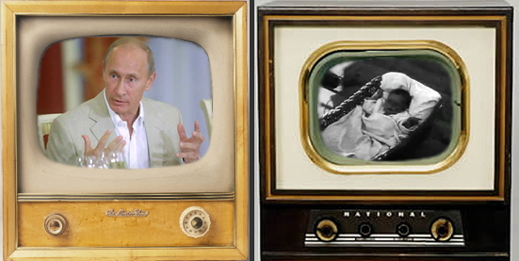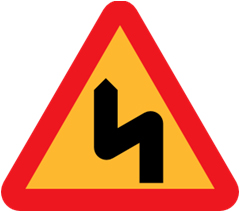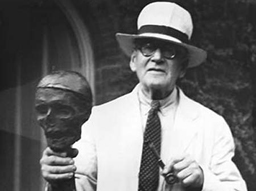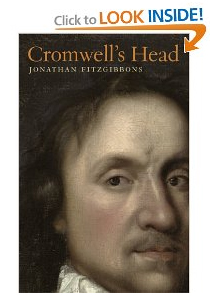
| link 1 | link 2 |
By John Helmer in Moscow
The Valdai International Discussion Club is a collection of journalists, academics and erstwhile opinion-makers from countries whose hostility towards the Kremlin has traditionally been a problem. Neutralizing that sentiment has been the principal reason the club’s annual autumn trip to Russia and talk-show with Vladimir Putin have been organized and paid for out of the state’s information budget.
The club website describes its “mission…to create an international venue where leading experts on Russia can receive trusted and competent information on the country from top federal and regional officials.” The leading experts are trusted, too.
This year’s Club meeting with Putin, the seventh since 2004, was held in Sochi (see video record, left set). The Valdai members – mostly Americans, British and Germans, with fresh inclusions from 13 other countries (none from Africa) – are scheduled to meet President Dmitry Medvedev on September 10.
The verbatim transcript of the Sochi meeting which appears on the prime ministry website is not complete. A report of the questions and answers from the US think-tank Eurasia indicates what has been left out of the official record.
“On environmental issues”, the report says, “Putin expressed support for the decision to halt work on a new highway through a forest in the Moscow suburb of Khimki. He stated that the traffic flow on the new highway would harm the environment, and referenced his decision to re-route a pipeline away from Lake Baikal to protect the environment. The strength of Putin’s words implied that environmental activists have gained traction in Russia.
“When the Khodorkovsky case came up Putin became visibly angry. He implied that Khodorkovsky had caused people to be killed, and tersely stated that this case should be left to Russia to deal with. Khodorkovsky’s fate seems very unlikely to change.
“Putin was questioned several times about whether Russia needed a ‘good Tsar,’or authoritarian rule by a strong leader. His initial response was that people want their leadership to solve all problems. Putin then stated his goal of creating a self-regulating system which would by itself, without direction from above, solve problems. The concept was not clear. When pressed on the point that institution-building was very important, Putin demurred.”
The reporters at the Sochi meeting are gradually airing their versions of what was said. Since they too are glossing the record, here is a selection of Putin’s remarks from the prime ministry record, which aren’t quite appreciated outside Russia for what they mean:
Against zigzagging
| “Our objective is not to make an impression, but to set forth conditions that would enable the country to move forward smoothly, without any major fluctuations. We wouldn’t want it to have any ups and downs, swinging back and forth. We had too many such disturbances and changes in our recent history. What we need now is a stable, calm environment that would ensure incremental development.” |  |
In favour of babies
 |
“Only recently, it was commonly believed that Russia would not be able to get out of its demographic deadlock. In the past few years, however, we’ve seen some unexpected positive shifts take place, with the birth rate rising and the death rate decreasing. Sure, there’s still a long way to go. But already, over the last four years, we’ve seen life expectancy extended by five years, which is quite a leap, really. Last year, for the first time in many years, we saw no population decline. And for the first time in the past decade and a half, we’ve the birth rate steadily growing. All this goes to show that despite the economic downturn, many of Russia’s families now have a sense of stability, which lets them expand their family planning horizons.” |
Against intervention in foreign investment regulation – US version
“I don’t think Russian law is more conservative than the law of any other European country or the United States from the standpoint of foreign investor access to strategic projects. We remember the controversy around the opportunity to use Arab capital [Dubai World Ports] for infrastructure projects in the United States and what decisions its port and other infrastructure authorities made. We know that a special commission has been established, where secret services are represented, and so on. In this sense, I think that our law is even more liberal than in some other countries. We will follow this road and will not create any barriers to investment.
Against exaggeration
| “What President Medvedev formulated in the agenda which he proposed is still absolutely relevant now and in the near future. It is nothing extraordinary, of course.” |  |
Against the London Times
“Richard Beeston: Thank you Prime Minister. Richard Beeston, The Times, London. Last week we talked about the past, about Russian history and especially about the turbulent 20th century which was fatal for many Russians. I am amazed that with seven years to the centenary of the Bolshevik Revolution, Vladimir Lenin is still lying on display in the Mausoleum in Red Square, with guards standing around him. Don’t you think its a good idea to finally bury him before this event, to help Russia turn a new page? Thank you.
Vladimir Putin: Are you from Great Britain?
Richard Beeston: Yes.
Vladimir Putin: Then I have a question for you. Was Cromwell better or worse than Stalin?
Richard Beeston: Probably just as bad. But he is not displayed on Trafalgar Square, but somewhere in Westminster, at the back.
Vladimir Putin: But there are monuments to him all over Britain, everything in its season. When time comes, the Russian people will decide what to do. History is something that avoids hassle. Next question please.”
For Cromwell’s head
| Beeston’s published report omits entirely the story of Cromwell, the exhumation of his corpse and its execution in public, three years after his death, following the restoration of the British monarchy; and the subsequent public display over another 150 years of Cromwell’s severed head.* |  |
Beeston’s newspaper report of the Sochi meeting focused instead on London’s fear of the future. “The prospect of Mr Putin remaining in power for the next 14 years – continuing as Prime Minister for two years and then as President for up to 12 years – horrified the Russian opposition,” according to Beeston. He added that so far as the British establishment is concerned, Medvedev as the alternative isn’t up to it, physically or politically. “The contrast with his diminutive political partner – President Medvedev – has been glaring. President Medvedev seemed to spend his summer anchored behind his desk in the Kremlin struggling to cope with one crisis after another.”
The Nabucco opera – the fat lady has sung
| Asked by a Turkish expert to say whether the proposed gas pipeline projects to cross the Black Sea, Russia’s South Stream and the European Union’s Nabucco, are rivals, Putin replied: “Nabucco’s biggest problem is lack of guaranteed gas supply. The pipeline does not have guaranteed gas sources, and I don’t know if it can find any…There is one more problem in the region the territorial dispute between Turkmenistan and Azerbaijan over the delimitation of the Caspian Sea. In my opinion, building a pipeline under these circumstances, this unsettled dispute, will be difficult, to put it mildly, if not impossible. |  |
“These problems may prevent the implementation of the Nabucco project, although theoretically it is possible to build that pipeline, provided the concerned companies invest billions of dollars in it without signing preliminary contract. Good luck and Godspeed to them; I see nothing dramatic in that possibility.”
* Want to know how really civilized people treat the corpses of the winners of their civil wars – check this out:












Leave a Reply